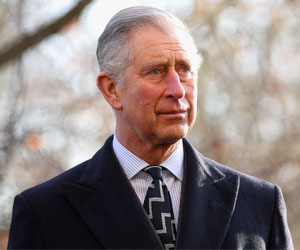Khalid Mehmood, the Pakistani national, died of natural causes, of chronic liver disease only. No foul play, please, India asserts. But Pakistan is furious.
The fate of Indian national Sarabjit Singh, convicted of terrorist activities in Pakistan and awaiting hanging, could depend on whether Pakistan is willing to buy its neighbour’s explanations.Khalid Mahmood, 30, died on Feb 12 this year at the All India Institute of Medical Sciences, New Delhi, but his family in Pakistan was informed about his death only on March 4.
“It is regrettable that India did not inform Pakistan’s High Commission in New Delhi about the arrest of the deceased as required under international diplomatic norms in such cases,” Foreign Office spokesman Muhammad Sadiq had said last week.
He said that Pakistan was shocked and angered at the death of Khalid in mysterious circumstances and it had asked the Indian Ministry of External Affairs to get the matter thoroughly investigated and share the outcome with Pakistan.
On Thursday Indian officials claimed that Khalid had been suffering from chronic liver disease and died due to "medical problems."
The internal inquiry by jail officials and magisterial probe have established that Khalid Mehmood alias Azad died due to chronic hepatitis and rupture of blood vessels in liver," Haryana Director-General of Prisons Dr John V George said, giving details of the preliminary probe into the Pakistani's death after he was shifted to hospital from a Gurgaon jail.
Advertisement
"Khalid himself did not know he had serious medical problems. He was taking treatment periodically and his condition deteriorated in the last four months," the prison official added.
Advertisement
He died the next day and his body was handed over to Pakistani officials at Attari-Wagah border on March 10.
George said the inquiry was also looking into whether Khalid was getting "timely and appropriate medical attention" while in jail.
The 35-year-old from Lahore had come to watch an India- Pakistan cricket match in Kanpur in April 2005, was arrested a year later when found roaming aimlessly in Faridabad and lodged in Bhondsi jail for overstaying his visa permit.
The controversy is unlikely to die that easily. Pakistan demands to know why India did not inform Pakistan’s High Commission in India about the arrest of the deceased Khalid Mehmood as required under the international diplomatic norms in such cases.
It notes that the Indian authorities did not provide consular access to the High Commission when he was in custody.
The incident has dampened the goodwill generated by the recent release of the Indian prisoner, Kashmir Singh, and has also negated the spirit of the recent Pak-India agreement on the establishment of a Judicial Committee on Prisoners, it is contended.
An official of Pakistan High Commission in New Delhi charged India had refused to provide, despite repeated requests, details of over 500 Pakistani prisoners languishing in Indian jails.
The High Commission had written letters to Indian External Affairs Ministry for providing consular access to about 200 prisoners but there was no response.
Similarly it had sent the travel documents of 150 prisoners for their repatriation to Pakistan but there was no response from Indian side so far, the official said.
Besides India had been requested to provide names and details about 48 Pakistani nationals in jails across Punjab, as reported by a section of Indian Press, again in vain.
Source-Medindia
GPL/L











